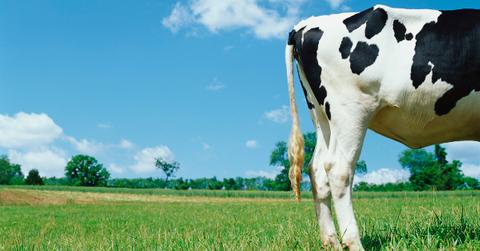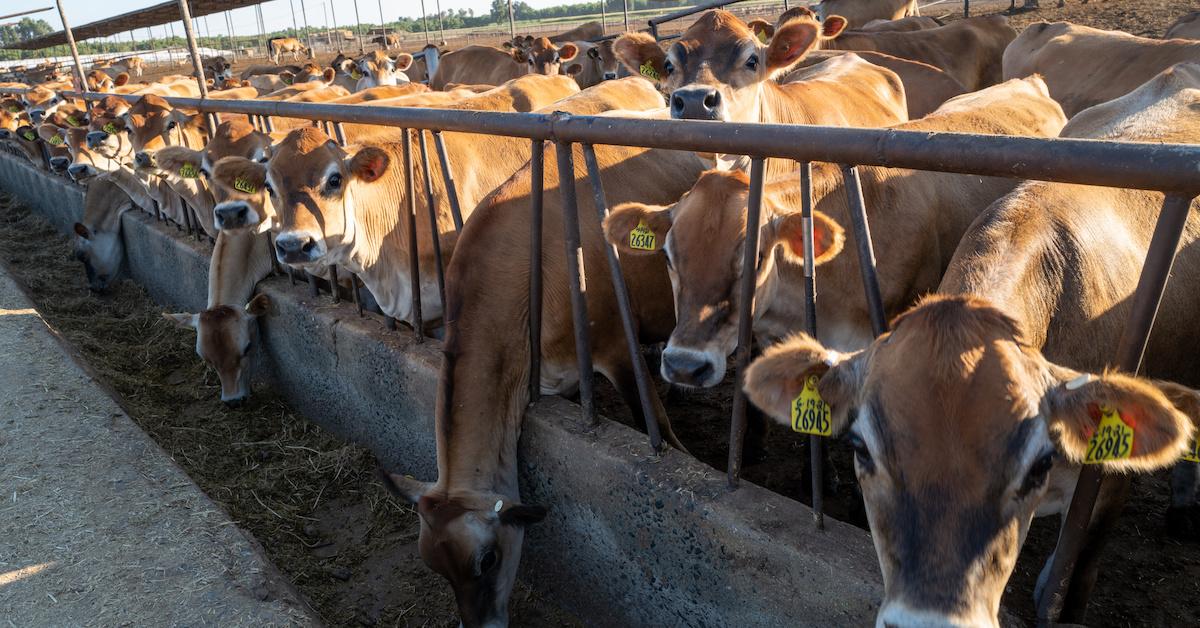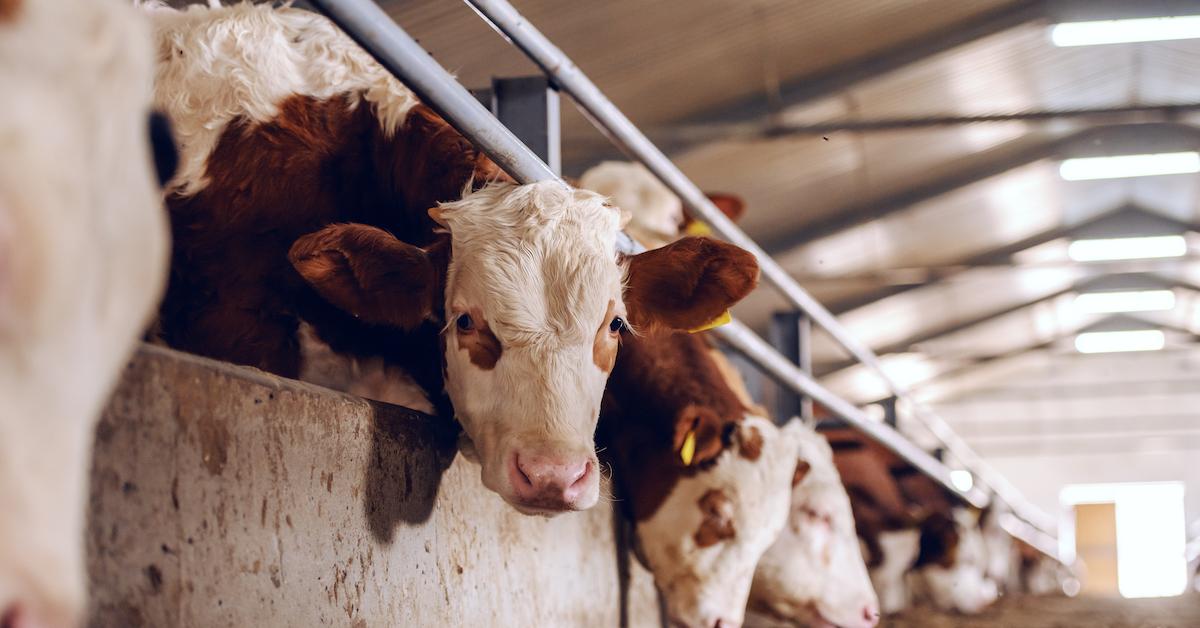New Zealand May Start Taxing Farmers For Cow "Emissions" (aka Their Burps and Farts)
Published Oct. 12 2022, 11:28 a.m. ET

The agricultural industry is one of the most pollutive sects of our economy — between toxic pesticides, water waste, and rampant land clearing, farming continuously wreaks havoc on our planet. But one of the most pollutive aspects of farming? Cows... particularly their, ahem, "emissions."
Cow burps and farts contain large amounts of methane, which can significantly deplete our atmosphere's ozone layer. That's precisely why New Zealand may impose a tax on cow emissions.
New Zealand's Prime Minister, Jacinda Ardern, announced this proposition at a dairy farm in North Island on Tuesday, Oct. 11.
“The proposal, as it stands, means New Zealand’s farmers are set to be the first in the world to reduce agricultural emissions,” Ardem stated, via The Guardian. She said moving forward with this would simultaneously help protect the planet, while allowing producers to continue as they are.
“No other country in the world has yet developed a system for pricing and reducing agricultural emissions, so our farmers are set to benefit from being first movers,” the Prime Minister continued. “Cutting emissions will help New Zealand farmers to not only be the best in the world but the best for the world.”

Farmers are concerned how taxing cow emissions will affect them, financially.
Through November, the New Zealand government will be reviewing Prime Minister Ardern's proposal to have farmers pay a tax on their cow's methane emissions, to curb global warming. According to CNN, New Zealand is a leading livestock and meat exporter.
Nationwide, there are about 10 million cows, and 26 million sheep. But because the farming industry contributes to about 50 percent of nationwide emissions, and 91 percent of methane emissions, it's crucial for the government to take action.
“This is an important step forward in New Zealand’s transition to a low emissions future and delivers on our promise to price agriculture emissions from 2025,” Jacinda Ardern stated in the press conference.
“The proposal aims to give New Zealand farmers control over their farming system, providing the ability to reduce costs through revenue raised from the system being recycled back to farmers, which will fund further research, tools and technology and incentives to reduce emissions.
Obviously, the concept of this tax has received quite a bit of backlash from New Zealand farmers, because of the amount of money it could end up costing them. Lobbying groups have called it "gut-wrenching," though the government hopes it will encourage farmers to lower their emissions, without being too costly.
Farmers will be charged based on a biogenic methane levy price, which will be set by the government and the the Climate Commission.

While it could be worthwhile, environmentalists think the tax won't do enough.
Even though farmers are upset with the tax, environmentalists don't believe this is a big enough step to curb emissions from the agricultural industry.
According to EuroNews, Greenpeace's lead climate campaigner, Christine Rose, feels the government doesn't crack down on the dairy industry enough, because it's the country's largest export. But it could take a larger toll on Māori-owned farms.
“Action to reduce agricultural emissions means tackling the dairy industry — New Zealand’s worst climate polluter. And that means far fewer cows, it means cutting synthetic nitrogen fertilizer, and backing a shift to more plant-based regenerative organic farming,” she said.
It's unclear if these plans will go into action, but if they do, we'll see if they prove to be helpful — and if other countries follow suit.